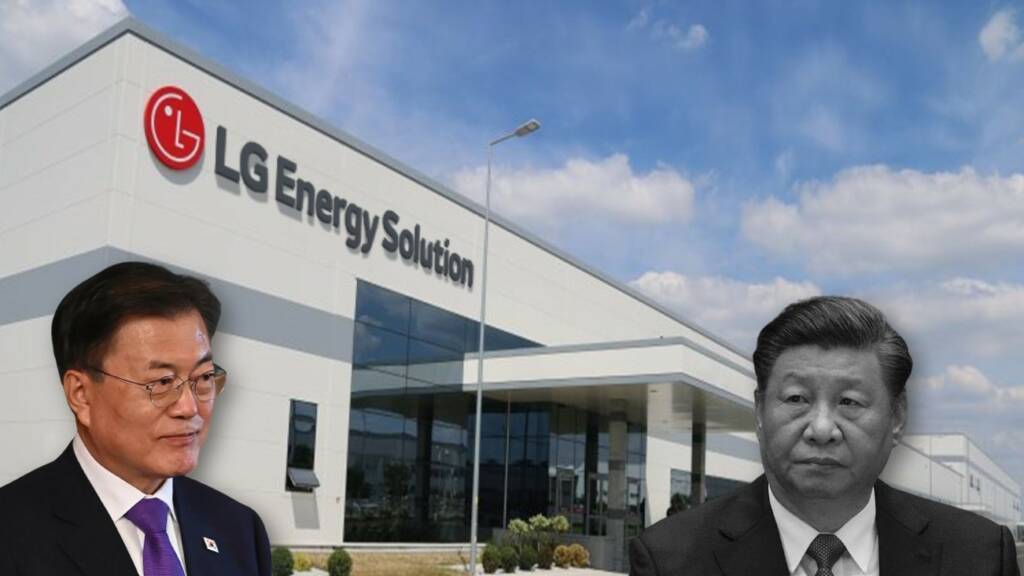Electric Vehicle batteries are the fuel of the future. And that’s why countries around the world are restlessly working towards dominating the EV battery sector before any other country does. For instance, China has already secured a 40% share of the global EV battery market.
Chinese companies like CATL and BYD are spearheading China’s campaign of usurping global EV battery supply chains. You see, CATL singlehandedly holds a whopping 32.5% market share while BYD stands at 7%. We must admit, the numbers are quite impressive!
South Korea’s giant registers impressive IPO performance
But that’s not the whole story. South Korea has unveiled its plans to derail China’s flawless battery-making streak! Now consider these numbers: LG Energy Solution, South Korea’s biggest EV battery making giant, hit global headlines this Thursday after the company attracted bids worth 13 trillion Won in South Korea’s biggest-ever initial public offering so far.
This jaw-dropping IPO performance took the company’s total market valuation to 118 trillion Korean Won or $98 billion. After Samsung, the company is the most valuable company listed on the main South Korean stock exchange called ‘Kospi.’ The South Korean giant attracted heavy demand from individual and institutional investors, indicating the continued appetite for South Korean companies related to the EV battery sector.
LG publicly vows to flatten China’s battery making firms
LG is eyeing rapid expansion in the times to come and is hoping to replace China’s CATL to become the world’s top battery manufacturer. Currently, the company holds a 20% share of the global EV battery market. Earlier this week, it announced plans to build a $2.6bn battery manufacturing factory in the US with General Motors.
LGES CEO Kwon Young-soo last week said “his company aimed to overtake China’s Contemporary Amperex Technology Company Limited (CATL) to become the world’s largest global supplier of electric/hybrid vehicle batteries by the end of the decade.”
So, China’s hopes of ruling the global EV battery sector have been ruthlessly dashed by South Korean giant LG Energy Solution. But that’s not all, another South Korean company SK Innovation is also fast catching up. The South Korean battery manufacturer currently holds a 5% market share and is expanding rapidly.
The Moon administration’s impressive battery-making push
So, what’s behind the South Korean giants making impressive strides despite neck and neck competition from the Chinese firms? Well, it’s the impressive efforts being made by South Korea’s Moon Jae-in administration, which is vehemently supporting its EV battery firms through government-backed programs and incentive-oriented policies.
Earlier this year, South Korean President Moon Jae-in had said that South Korea will strive to become a global manufacturing powerhouse by 2030. In July, Moon had told the Korea Economic Daily that “batteries are the backbone of the Korean industries that hold the future of the country. We should sharpen our competitiveness to overtake our bigger rivals and further widen the gap with our followers.”
The Moon administration has also announced tax relaxations and incentives for domestic battery manufacturing companies. Thanks to the government’s pro-battery manufacturing policies, South Korea has so far gained investments worth a whopping $35.4 billion in the sector from giants like LG Energy Solution Ltd., Samsung SDI Co., and SK Innovation Co.
The administration of President Moon Jae-in has stated that it will assist enterprises in creating next-generation products, such as solid-state batteries. An 80 billion won fund will assist small and medium-sized businesses in improving their ability to supply battery-making materials and components. The fund will be funded by the government, financial institutions, and the three battery manufacturers.
China’s EV firms at their weakest
This is enough to flatten China’s EV empire. Chinese EV companies so far thrived owing to massive subsidy programs that were funded by the Chinese government. However, the cash-strapped government this year announced that it will roll back its subsidy programs to meet the requirements of the Regional Comprehensive Economic Partnership (RCEP) that came into effect on the 1st of January.
Read More: How the RCEP may kill China’s EV industry in stillbirth
So, without the government’s backing, Chinese EV firms are today their weakest. And this will greatly help non-Chinese EV companies based out of South Korea, Japan, and the US. And that’s why South Korean battery-making companies like LG and SK Innovation are eying to tank China’s EV empire within the next eight years.
